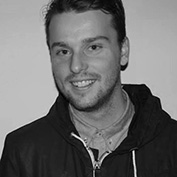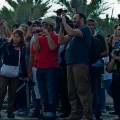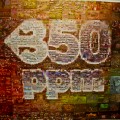A Reflection on Wikileaks
Adam Gleeson | January 12, 2011.
Have you been living under a rock for the past few months? Perhaps on Mars? Or even the Moon?
If you answered no to all of these questions then there is no way that you would have missed the diplomatic catastrophe and media-driven phenomenon that is Wikileaks.
Wikileaks has become undoubtedly the biggest media story of 2010. A year that had been dominated by environmental catastrophes, election quagmires and a charming survival story was overcome by a new media collective that publishes submissions of private, secret, and classified media from diplomatic cables and confidential documents.
It is a tale that has more twists and turns than any classic Hollywood espionage thriller.
Members of the right believe Wikileaks director and spokesperson Julian Assange to be the world’s number one high-tech terrorist, guilty of endangering lives and creating devastating ripples within the world’s political hierarchy.
Members of the left see Assange as the archetypal hero of new media where freedom of information and open government are more important than secrecy and hidden opinion. They cry ‘who doesn’t want governments to be more accountable to their citizens?’
Add to this screenplay a rape charge and possible extradition to Sweden for Assange to fight these charges and one wonders if there is any need for a new Jason Bourne movie.
Although rape is a serious issue, it is questionable about the objectives hidden behind these charges
An inclusion in the 2011 Oxford English Dictionary could be: Assange; (v): To prosecute someone for one thing, when you really want to prosecute them for another. “My client was assanged your honour”
For Julian Assange is indeed an interesting character. A former University of Melbourne student who up until two years ago lived in Grattan Street, Carlton he has become so celebrated than many believe he was robbed to not win Time Magazine’s famous Person of the Year award for 2010.
There is no doubt that Assange has become a hero for some. Not happy to have caused significant disruption in international diplomatic community, Assange claims to have developed a new form of journalism: scientific journalism. This ‘allows you to read a news story, then to click online to see the original document it is based on.’ In this way, you can see if the journalist has reported the story accurately and with fairness.
Sounds good in theory, even if it the term itself is a little daggy.
I was lucky enough to visit the US State Department (the source of many of the leaked cables) headquarters located in Washington, DC in July of last year. It is an imposing building that not just anybody can enter. Whilst the security process is much like that of an airport, the difference is that if you have not been authorized to enter, then there is no chance that you will be allowed in.
Whilst there I was lucky enough to hear a few different members of Secretary of State Clinton’s Innovation team discuss what they termed as 21st Century Statecraft, which can basically be surmised as developing interactive communication which are creative and responsive in how they enable people to engage directly with each other and other countries.
What does this sound a little bit like?
Open Government is a staple of any democracy. Government’s need to be accountable to their citizens so that citizens can make informed decisions on election days. It is a bit like the old truism that Government’s are voted out and not in.
A downfall of democracy is that the uninformed are the people with power. In Australia it is compulsory to vote. Every registered adult is allowed to mark the ballot paper. Many of these people are often uninformed as to the policies and procedures of the party they are voting for.
Major political decisions and shortcuts/mistakes can also arguably too easily be hidden by the cabinet privilege of 30 year immunity, meaning the truth is often too easily hidden and accountability is avoided.
In Australia, if the Government of the day wishes to keep something a secret then they may simply publish their documents through Cabinet meetings, automatically granting it confidentiality for thirty years.
How much secrecy is too much?
Wikileaks opens Governments. It gives power to the powerless. It provides knowledge to the uninformed.
If anything the Wikileaks debate has proved that Government’s around the world are hiding from their citizens.
Should Government’s be allowed to keep things secret from their citizens in the interest of national security? Probably. Should they be allowed to hide documents from citizens at the level that they are? Definitely not.
Many of you will disagree. And that’s okay. It’s 2011 and we live in a democracy.
That’s the point.












comment